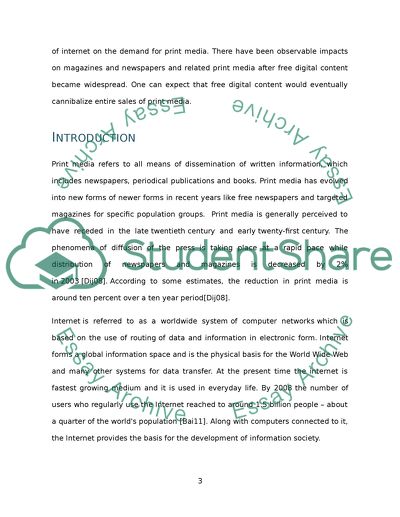Cite this document
(“Affect of Internet on Print Media Essay Example | Topics and Well Written Essays - 2250 words”, n.d.)
Retrieved from https://studentshare.org/journalism-communication/1394772-affect-of-internet-on-print-media
Retrieved from https://studentshare.org/journalism-communication/1394772-affect-of-internet-on-print-media
(Affect of Internet on Print Media Essay Example | Topics and Well Written Essays - 2250 Words)
https://studentshare.org/journalism-communication/1394772-affect-of-internet-on-print-media.
https://studentshare.org/journalism-communication/1394772-affect-of-internet-on-print-media.
“Affect of Internet on Print Media Essay Example | Topics and Well Written Essays - 2250 Words”, n.d. https://studentshare.org/journalism-communication/1394772-affect-of-internet-on-print-media.


